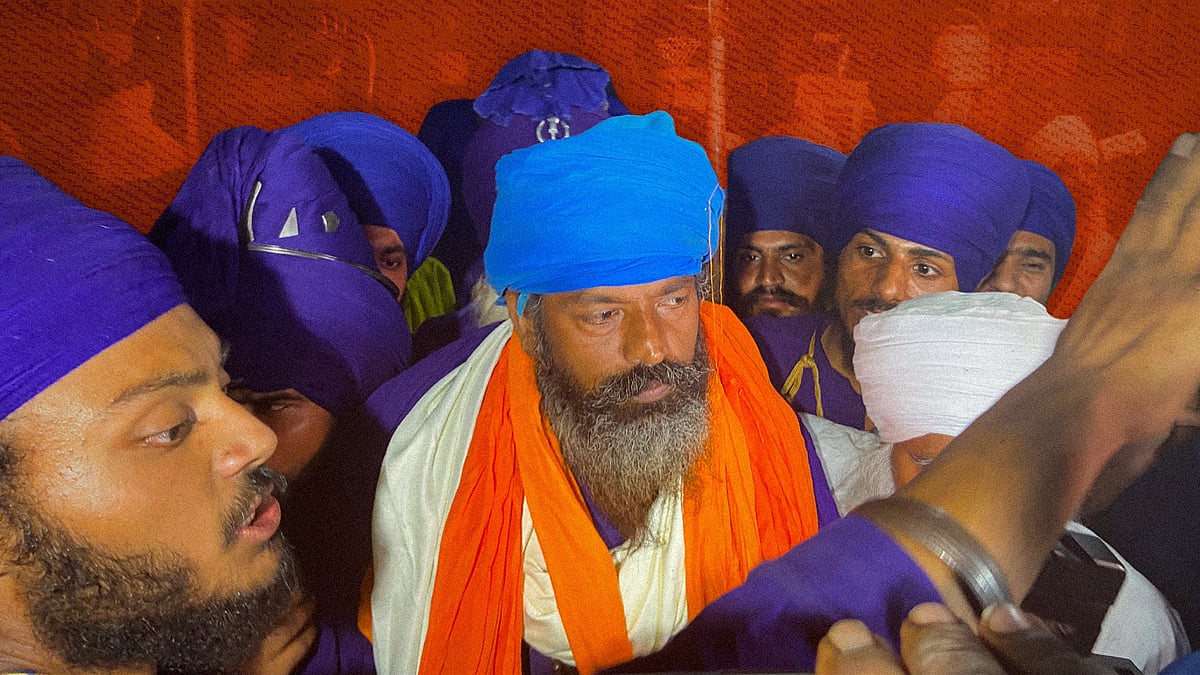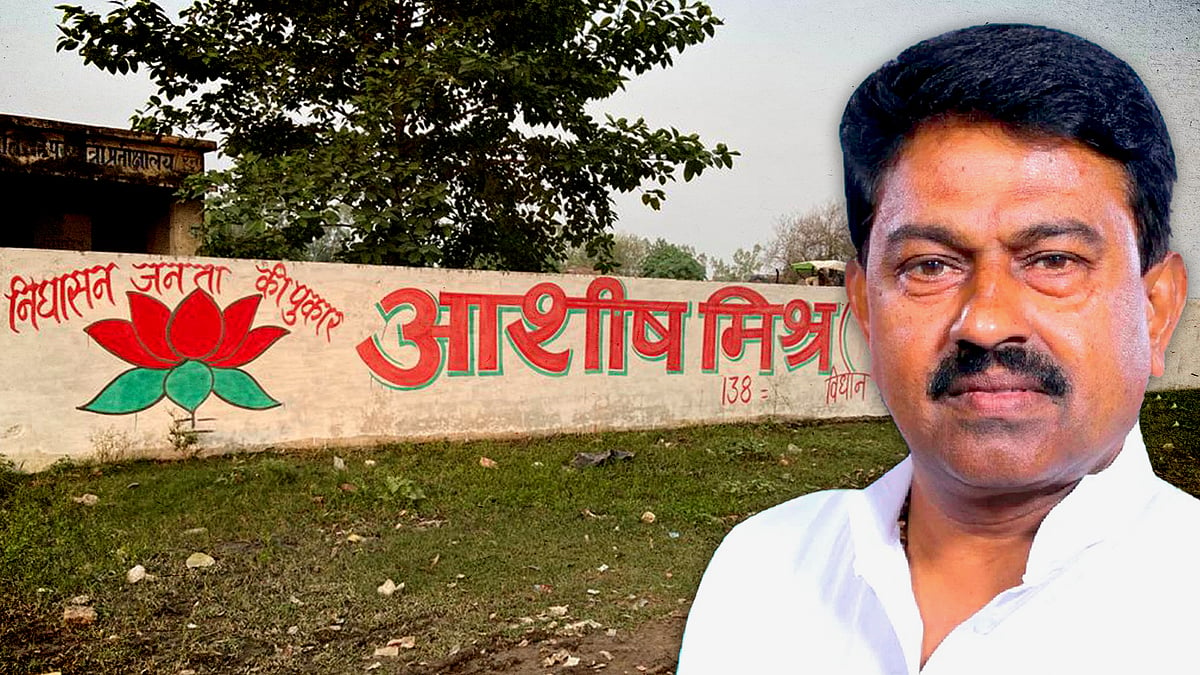The curious case of Vishal Jood: Accused of anti-Sikh violence, he’s now a right-wing saviour
Or how a convicted criminal deported from Australia was lionised on his return to India.
Australia is not only a young country, it is also a nation of immigrants. According to the Government’s Bureau of Statistics, it is home to 7.6 million migrants (out of a total population of 26 million in 2020). Indians make up a substantial number; at 721,000, Indian-born migrants are second only to those born in England. Since the ending 50 years ago of its “White Australia” policy, the government has tried hard to become more open and welcoming of immigrants from all parts of the world. Officially the policy is “to build on our success as a culturally diverse, accepting and open society, united through a shared future".
Indian immigrants to Australia have prospered as well as contributed to the economy. They are the second highest tax-paying diaspora group after the British; and the Australian government anticipates and welcomes a doubling of Indian immigrants to 1.4 million in the next decade.
But along with Indian immigration comes India’s communally charged and violent politics.
On April 16, 2021, an Indian student Vishal Jood (24) was arrested by New South Wales police and charged with several counts of violent assault, causing actual bodily harm, and damage to property. He was an Indian student who was operating as part of a group targeting Sikhs and their businesses. This online news portal chronicles several such incidents of violent attacks on Sikhs.
According to this legal website, the director of public prosecutions withdrew eight charges following which Jood agreed to plead guilty to three charges. The prosecution did not convince the magistrate that “Vishal’s conduct had been motivated by animosity towards Sikhs”.
“Pleading guilty” means in effect that Jood confessed to his involvement in the crimes related to the 3 charges. He received a six month prison sentence backdated to April 16, the date of his arrest and imprisonment without bail.
Three days ago on October 16, Vishal Jood was deported from Australia and sent back to India. Australia’s minister for immigration and citizenship Alex Hawke tweeted, “Attempts to undermine Australia’s social cohesion will not be tolerated,” with a link to a newspaper report that showed a picture of Vishal Jood (taken from his Facebook profile) in a yellow T-shirt, fashionably-trimmed beard, and a turban fashioned out of what looks like a scarf in the colours of the Indian flag.
That was when Jood transitioned from convicted criminal in Australia to homecoming hero in India.
According to a Times of India report from October 18, “a roadshow was organised in (Jood’s) honour, which concluded at the Ror Dharamshala (in Karnal)...Members of his family and community and his friends welcomed and honoured him with garlands of flowers.”
Ashwini Mahajan, national co-convenor of Swadeshi Jagran Manch (a Sangh Parivar outfit that campaigns against foreign direct investment in India and promotes self-reliance) and a professor at a Delhi University college tweeted his welcome to Jood suggesting that the Indian student had been “arrested after being falsely implicated by Khalistanis”. His tweet also carried a 28-second video clip showing the road show, set to pulsating patriotic music, with young men hanging out of windows, one of them standing up through a sun-roof, jubilantly waving Indian flags.
Vishal Jood’ defence
In the court hearing back in September, according to this legal website, Jood’s counsel played a video of a Farmers rally in Sydney in December 2020. It showed Jood unfurling the Indian Flag following which, over a dozen “goons” surrounded and assaulted him, chanting “Modi kutta, Modi kutta”.
In the February 14 incident, the court heard evidence that a small group of organisers (including a few women) of a “tiranga car rally” were threatened menacingly by a group of 100 men shouting slogans such as “Modi murdabad”.
The magistrate found (quoted directly from this legal website) that
Vishal had very good prospects of rehabilitation.
Vishal had a great deal to offer to the community.
He advised Jood that “people will aggravate you”, but he “should resist the temptation to react violently.”
More than meets the eye
Clearly, as is true for most such incidents, there is more than one side to the story of Vishal Jood. He felt provoked by Sikhs in Sydney protesting against the farm laws of the Modi Government back in India. This is not unique to Sydney. Sikh groups have protested in Britain, America and Canada too – all centres of Sikh migration. Vishal Jood’s case is that he took it upon himself to stand up to these protests. That premise rests upon the presumption, widely promoted by Hindu right-wing groups that are partial to the BJP’s policies, that protesting against the Indian Government is somehow anti-India. This is manifestly false; and even if Vishal Jood genuinely believed it was anti-India, it was not his burden to rise up and stand up for the Modi government.
If the Sikh protesters broke any laws in the countries where their protests occurred then that is a matter for the local police.
Peaceful protest is never a matter for violent vigilante policing by self-appointed patriots.
Though many of Vishal Jood’s supporters may think his violence was justified, the fact is that he was convicted of criminal offences in an Australian court. That he was lionised and turned into some kind of a patriotic hero on his return home from victimisation in a foreign country is typical of Hindu right-wing communal politics in India since the BJP’s rise to power in 2014.
Vishal Jood is no conquering hero who returned to his homeland to be feted like an Olympic gold medal winner. He was put on a flight home as soon as he had served his time in the jail of a foreign country which regards India as a good friend. His welcome in India as a patriot who was unjustly treated belies the confidence of the Australian magistrate that Jood had “good prospects for rehabilitation”.
If anything Vishal Jood’s prospects for rapid elevation in right-wing nationalist politics is bright indeed.
 ‘We don’t get in the Nihangs’ way’: Eyewitnesses detail a night of horror at Singhu
‘We don’t get in the Nihangs’ way’: Eyewitnesses detail a night of horror at Singhu  Lakhimpur: Banveerpur’s Hindu-Muslim and Sikh communities have very different stories on Ajay Mishra
Lakhimpur: Banveerpur’s Hindu-Muslim and Sikh communities have very different stories on Ajay Mishra